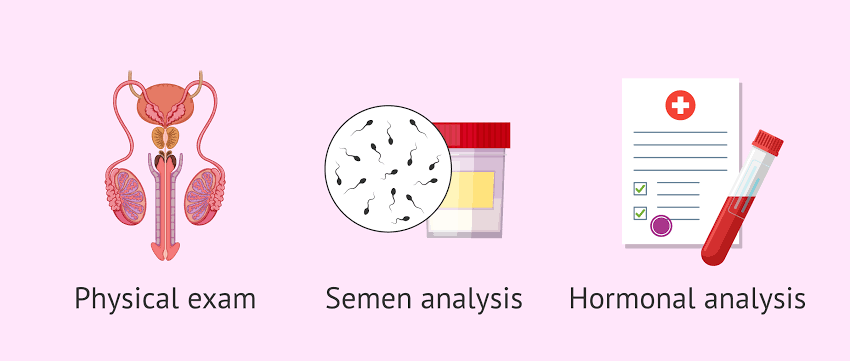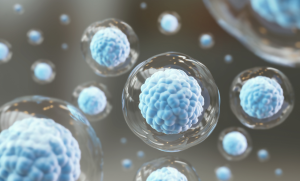Male infertility: some possible causes

Male infertility: A reproductive system issue known as infertility prevents you from becoming pregnant with a female. You, she, or both of you may have infertility concerns if a man and a female engage in recurrent unprotected sex for more than a year and the female doesn’t become pregnant.
What signs of male infertility are there?
The symptom is infertility itself. The detrimental psychological and emotional effects infertility has on a couple that desires to have children are considerably harder to put into words. Having a child often takes centre stage in people’s life. Both men and women who are trying to get pregnant frequently experience feelings of depression, loss, grief, inadequacy, and failure.
People or couples who are going through any of these emotions might wish to get support from medical professionals like a therapist or psychiatrist who has experience working with infertility problems. These professionals can support you as you receive treatment and assist you in dealing with the situation realistically.
Possible reasons for male infertility:-
Male infertility can affect some men more than others. You might have a higher chance if:
- You are obese or overweight.
- 40 years of age or older.
- Radiation exposure has occurred to you.
- Environmental pollutants including lead, calcium, pesticides, or mercury have been exposed to you.
- You consume drink, drugs, or cigarettes.
- You are currently using cyproterone, flutamide, spironolactone, bicalutamide, cimetidine, or ketoconazole, among other drugs.
- Your testicles are becoming hotter because of the heat in your environment. This might happen to those who routinely use wheelchairs, saunas, or hot tubs.
- You’ve previously had undescended testicles (s).
- You’ve previously had scrotal varicoceles, which are enlarged veins.
- You’ve come into contact with testosterone. For low testosterone, some men require injections, implants, or topical gel.
Why are men less fertile?
Your fertility may be impacted by a variety of biological and environmental factors. among the possibilities are:
- Azoospermia: Your failure to make sperm cells may be the cause of your infertility.
- Oligospermia: The generation of sperm of inferior quality.
- Klinefelter’s syndrome, myotonic dystrophy, microdeletion, and other genetic illnesses are a few examples.
- Sperm isn’t healthy and won’t live long enough to fertilise the egg.
- Several medical problems, such as diabetes, a few autoimmune diseases, cystic fibrosis, and a few infections, are provided as examples.
- some drugs and supplements.
- Varicoceles: This is a condition in which your testicles’ veins are larger than usual, causing them to overheat and potentially affecting the size or quantity of your sperm.
- Cancer therapies include chemotherapy, radiation therapy, or testicular removal surgery (one or both).
- Substance abuse, including the use of alcohol, tobacco, and narcotics.
- a testicular trauma.
- Infertility may be impacted by hormonal problems that affect the brain or pituitary gland
 Source: Google Images
Source: Google Images
How are tests and diagnosis for male infertility performed?
A thorough physical examination is the first step in the diagnosis to ascertain your general health and spot any medical issues that may have an impact on your fertility. Your healthcare professional may ask you and your partner questions about your sexual preferences. The next course of action may be to undergo testing to determine the cause of infertility if the physical examination and medical history fail to reveal any causes for your failure to conceive.
Additional tests for male infertility could consist of:
Sperm quantity (semen analysis). On different days, at least two semen samples are collected. Numerous things will be examined by your doctor in the sperm and semen. These factors include how much semen you produce, its uniformity, and its acidity. He or she will also take into consideration the quantity, shape, and mobility of your sperm.
A Blood Test. Blood tests may be used by your doctor to examine hormone levels and rule out other issues.
several exams. These tests are performed by your doctor to identify the root cause of sperm abnormalities or other issues with the male reproductive system. For instance, your testicles, blood arteries, and structures inside the scrotum may be examined using imaging tests like an ultrasound.
Prostate Biopsy. Your healthcare professional may take a small sample of tissue (biopsy) from each testicle if semen analysis reveals that you have few or no sperm. A microscope will be used to examine the sample.
What are the treatments for male infertility?
There are now more treatment options available for male infertility because of contemporary technology and procedures. The following treatments may be used, depending on the cause of infertility:
Medications:
- Hormone therapy to boost sperm production.
- alterations in way of life
- Keep your weight within a healthy range.
- Give up smoking.
- Give up drinking.
- Abandon marijuana use.
- Stop using drugs recreationally.
Surgical treatments:
- Vasectomy reversal: This frequent technique is performed as an outpatient operation. The vas deferens, the scrotal tube through which your sperm travels, is reconnected by the surgeon. The surgeon delicately stitches the ends of the vas deferens back together while using a high-powered surgical microscope to observe it.
- Vasoepididymostomy: This procedure clears obstructions in your vas deferens. The blockage is surgically removed, the ends of the tube are rejoined, and your vas deferens is separated. The epididymis, the coiled tube next to your testicle where sperm cells grow, may have developed another obstruction after the original vasectomy was carried out many years ago.
- Infection or damage to the epididymis can also cause blockage there. Whatever the source, your surgeon will resolve the issue by avoiding the epididymis blockage.
- Sperm Recovery: In some serious cases, sperm recovery requires a testicular biopsy.
Can infertility in men be avoided?
You may be able to lower your risk if your infertility is impacted by lifestyle choices like smoking and working with particular chemicals. Discuss additional risk factors and what you may do about them with your healthcare provider.
Talk to your doctor about sperm banking if you will be receiving cancer treatment.
What are the prospects for infertile men?
It’s not necessarily impossible to have a child of your own even if you struggle with infertility. Options for treatment exist. You can improve your chances of getting pregnant by working with your spouse and a urologist.








